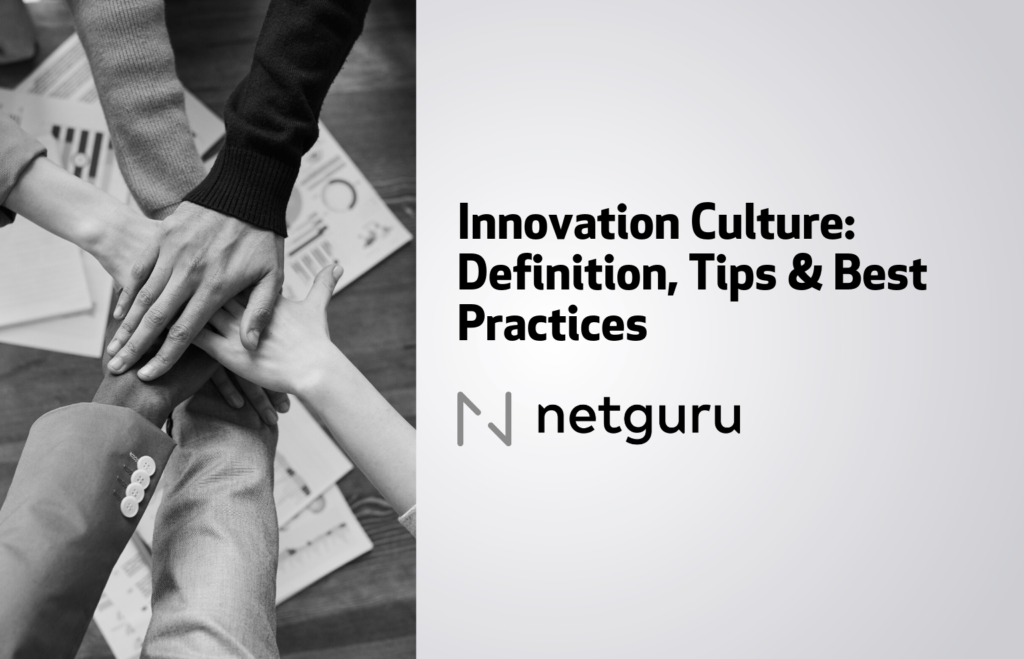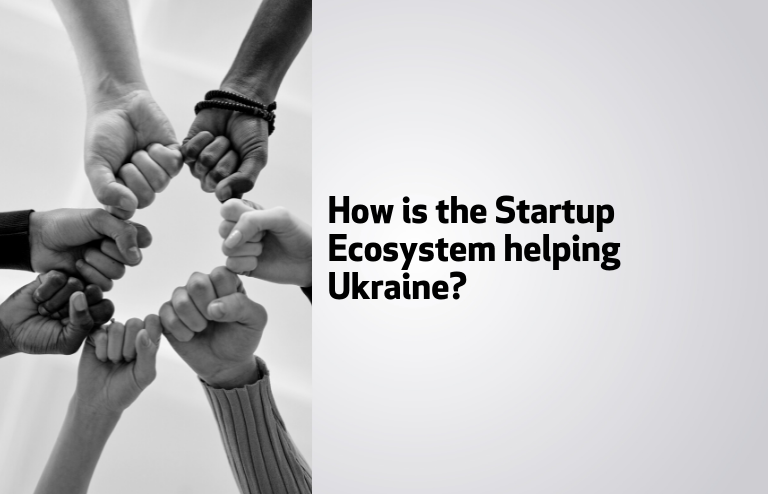Patient support by means of telemedicine, a chatbot service with up-to-date information from the Ministry of Health, remote rehabilitation and respiratory examination – these are some of the solutions developed by Polish startups that participated in the MIT Enterprise Forum CEE acceleration program and now have the capabilities necessary to support the medical/healthcare sector and help it navigate the rough waters of digital transformation. The Foundation for Technology Entrepreneurship, together with the accelerator’s partners and alumni, initiates the ‘Technologies versus COVID-19’ project – the first practical step of many to put the startup ecosystem’s knowhow and disruptive potential to good use.
MIT Enterprise Forum CEE is an acceleration program that supports the most innovative science and technology startups from Poland and Central and Eastern Europe by combining their potential with the knowhow and resources of large enterprises from sectors ranging from financial and insurance, through energy, life science and FMCG, to media and technology for tourism, as well as with the experience of seasoned mentors. MIT EF CEE wants to make use of the potential of the program’s alumni in the current situation related to the coronavirus epidemic.
The initiative by MIT Enterprise Forum CEE and our business partners ‘Technologies versus COVID-19’ is aimed at selecting startup companies that have ready-to-market solutions to support the medical sector and the healthcare system as well as its transformation in the digital era. As a result of the coronavirus epidemic, medicine must make a technological leap. We’ve been on the frontline of tech breakthroughs for many years now. It’s always been driven by the minds of visionary startup founders and entrepreneurs. They have so much talent and potential, and the ability to achieve greatness. They push the boundaries, showing us that, against all odds, success in global terms is within reach. In the current epidemiological situation, remote medical care systems are an essential tool. Luckily, there is already a number of technologies that we can put into use today that can help treatmemt, testing, monitoring or any other aspects of the coronavirus outbreak.
assesses Magdalena Jabłońska, Chairwoman of the Foundation for Technology Entrepreneurship, operator of the MIT EF CEE program.
The main partners of the ‘Technologies versus COVID-19’ project are: Adamed – a Polish pharmaceutical and biotechnology tycoon, Coca-Cola in Poland – a leading force on the market of non-alcoholic beverages, as well as MCX – the core of a strong group of specialized companies that are providers of comprehensive ICT, software, and renewable energy solutions. Supporting partners are CVC Capital Partners, HubHub, MDI Energia, Nationale-Nederlanden, Sabre, Sollers Consulting, PZU and TVN Discovery Polska.
Remote medical consultations via chat, video chat or telephone, round-the-clock, 365 days a year, can be done via the Telemedi.co platform. It allows you to book an online consultation and choose a doctor, field of specialty, and language, and after talking to a specialist, access to medical records with recommendations, referrals, and prescriptions. The telemedicine platform handles tens of thousands of consultations monthly. The profiles of doctors and the appointment process are supported by an AI module, which conducts a preliminary interview with the patient and provides doctors with recommendations based on the symptoms introduced by individual patients. The solution of wide-scale remote consultations, including the technology developed by Telemedi.co, is used by the medical operator PZU Zdrowie, creators of the Virtual Clinic portal (Wirtualna Przychodnia). It is a place where the patient can undergo a full medical process without leaving home. It is unnecessary to own a medical package to make use of it. Teleconsultations also take place outside office hours, i.e. in the evening, at night, and on weekends and holidays.
In the current situation, solutions in the field of remote medical care are commonly used by PZU Zdrowie patients and they do help limit the spread of the virus.
claims Andrzej Zawada, Innovation Manager at PZU Zdrowie.
However, in many a case, a chat or even video chat with a doctor is not enough. This is the story behind creation of StethoMe whose solution enables remote auscultatory examination with a stethoscope and patient care, especially those suffering from respiratory conditions. Basing on medical AI-powered algorithms that coupled with an electronic stethoscope and a mobile application, their system detects pulmonary abnormalities. An integral part of the system is the AI module that ensures a professional auscultatory examination at home and then shares the result on a telemedical platform along with a detailed analysis indicating the anomalies. It is thanks to this combination that it is possible to accelerate the necessary medical appointments, including lung diagnostics in quarantined persons, but also monitoring of chronic diseases such as asthma or COPD, in the event of acute lower respiratory infections, such as pneumonia or viral infections.
Switching to remote diagnostics of people who experienced early worrying symptoms related to their respiratory system would significantly improve not only the safety of those in quarantine, but also the effectiveness of dedicated health care units. StethoMe also facilitates lung examination in people infected with the coronavirus. “We receive signals from the medical community that lung auscultation has become a problem. Medical personnel are forced to puncture or remove their protective coveralls. Only this way can they conduct a proper examination, which in turn carries a serious risk of infection,
comments Wojciech Radomski, CEO of StethoMe.
Over the past several weeks, the startup has developed a dedicated solution to empower medical professionals clad in protective suits to auscultate patients wirelessly, thereby ensuring their ability to safely perform this key examination. This ‘quick fix’ is currently being tested in an infectious diseases hospital in Poznań. Several other European hospitals have also shown interest in their system.
Instant COVID-19 testing device
Genomtec – a Wroclaw-based startup which operates in US and Europe, developed a smartphone-sized genetic analyzer for infection detection in the doctor’s office in less than 15 minutes, thanks to patent-pending optical, contactless heating technology. Their technology combines optical heating and detection with microfluidics and reagents stable at room temperature. Genomtec technology offers fast, inexpensive and reliable molecular diagnostic testing. The device works independently and automatically, it is enough to apply a drop of biological material to the reaction card and then place it in the analyzer. The test results can then get directly sent to an email address or fed into the medical records of the patient. Thanks to its ease of use and its automated diagnostic approach, Genomtec is able to effectively fight complications that result from viral infections, such as COVID-19.
Genomtec is currently developing Point-of-Care testing (POCT) platform intended for a rapid diagnosis of pathogens (microbial and viral) and mutations. The heart of our technology is created by a propriety contactless heating and nucleic acids detection technology, empowered by isothermal RNA/DNA amplification (LAMP). The current outbreak of COVID-19 (caused by SARS-CoV-2 virus) imposed unprecedented pressure on the world healthcare system, mainly due to diagnostic backlog resulting from utilization of qPCR-based assays (apart from the antibody-based that are not suitable for early diagnosis). Obviously, we are not ready with our platform yet – Genomtec ID, however, after careful analysis of the assay-time of currently available products on the market, the conclusion was simple: the problem at least partially occurs due to qPCR equipment capacity or its generic underutilization. How Genomtec can help here is by developing a rapid diagnostic test recognising both strains of SARS-CoV-2 virus in less than 20 minutes that can be used with major qPCR instrument brands. With time saved on the assay run, and reasonable price tag, we believe it could improve diagnostic flow, concomitantly increasing number of samples tested and simplifying the test itself (due to LAMP technique used). The COVID-19 test will be later included on our Atypical Respiratory Tract Infections panel for use on microfluidic card at Genomtec ID platform, true POCT.
says Bolesław Charles Winiarski, COO of Genomtec.
Rehabilitation via the Internet
Addressing the problems associated with the rehabilitation of chronic diseases of body and mind – the need for patients with wavering motivation to exercise regularly – and the high costs of professional care is Neuroforma. They support patients recovering from a stroke or traumatic brain injury in particular, as well as people suffering from neurological diseases, such as multiple sclerosis or Alzheimer’s disease. Their solution can also be used as an incentive to additionally activate the elderly to perform kinetic-cognitive exercises. Neuroforma capacitates patients to perform interactive exercises at home under remote supervision of a specialist. Therapists with help of the TeleNeuroforma web-platform simply prescribe dedicated exercise sessions for their patients who without leaving home, only using a computer and webcam, perform attractive, motivating, and beneficial exercises.
These three startups have already had positive experiences in cooperation with Nationale-Nederlanden, a company whose experts have been supporting the MIT Enterprise Forum CEE for many years.
We implemented pilot projects in the field of healthcare with Telemedi.co and StethoMe. We are currently mentoring Neuroforma, a startup specializing in rehabilitation. We believe that thanks to their mature solutions in the field of remote medicine, we will be able to aid society in general and the medical sector in particular in the present-day needs in the area of health,
asserts Urszula Gołaszewska-Kroenke representing Nationale-Nederlanden.
Bot instead of a helpline
Relieving the helpline of the NFZ (the Polish National Health Fund) which has been experiencing an overload in recent days, was the inspiration that guided Chatbotize, a start-up which, in cooperation with the Prime Minister’s Office, created a chatbot that provides timely, fact-checked, and official information about the coronavirus epidemic and the countermeasures undertaken by the government. The system learns on a real-time basis, and its knowledge base is updated basing on official data provided by the Ministry of Health.
This way, Messenger and Facebook users can find out, among others, where to get help or what legal provisions regulate closing the national borders. The chatbot makes use of AI, thanks to which it understands users’ questions and replies to them automatically. The company had previously developed solutions for customer services-related purposes that are employed by such market players as Aviva, InPost, Maspex, PKO BP and many more. They are also implementing a pilot project with Nationale-Nederlanded. Now, the very same technology that allows tracking packages via Facebook is here to safegaurd easy access to current information about the epidemic.
It is not just medicine and healthcare today that are in need of a profound and fundamental change. Companies for which the months to come will be trying for their business models must find a place for themselves in the new reality as well. The Foundation for Technology Entrepreneurship and its partners are still analyzing the solutions of other startups in the scope of their application in converting medicine into an online format, along with battling the coronavirus and its impact on business, economy and citizens.
The world is changing as we speak. Some of these changes are only temporary in nature, other are here for good. We have to make the best of the resources we have at our disposal and I believe that startups have the key to a brighter, and safer, future for all of us. We should consider this pandemic a test of our resilience to crises and the ‘Technologies versus COVID-19’ initiative is our first response. Very soon, we’re planning to organize a webinar for companies active on the CEE market that would like to get involved with startup companies from our accelerator alumni network. What I can promise is our experts’ effective consulting and technology matching. Our partners and public agencies have already announced their willingness to do their level best to boost our region’s tech capabilities to fight the good fight. And there is a lot more good news to be shared, but you will have to tune in to our webinar.
summarizes Magdalena Jabłońska.
A positive, very welcome side effect? With the demand for their products and services growing, startups will have it much easier to implement their solutions on a larger scale. Which naturally translates into even more beneficial disruption, so essential and vital for our world to go forward.
Want to know more? Follow us on social media where in the coming weeks, we will elaborate on our startups’ technologies and how they can contribute to the global war on the coronavirus.
| Telemedi.co ul.Marynarska 13 02-674 Warszawa +48 22 307 49 94 info@telemedi.co |
StethoMe ul. Winogrady 18a 61-663 Poznań +48 533 636 126 kosowski@StethoMe.com |
Genomtec ul. Stabłowicka 147, PORT Budynek 2, 54-066 Wrocław office@genomtec.com |
Neuroforma ul. Puławska 12/3 02-566 Warszawa +48 883 662 300 kontakt@neuroforma.pl |
Chatbotize Koszykowa 59 00-660 Warszawa +48 668 210 702 |




